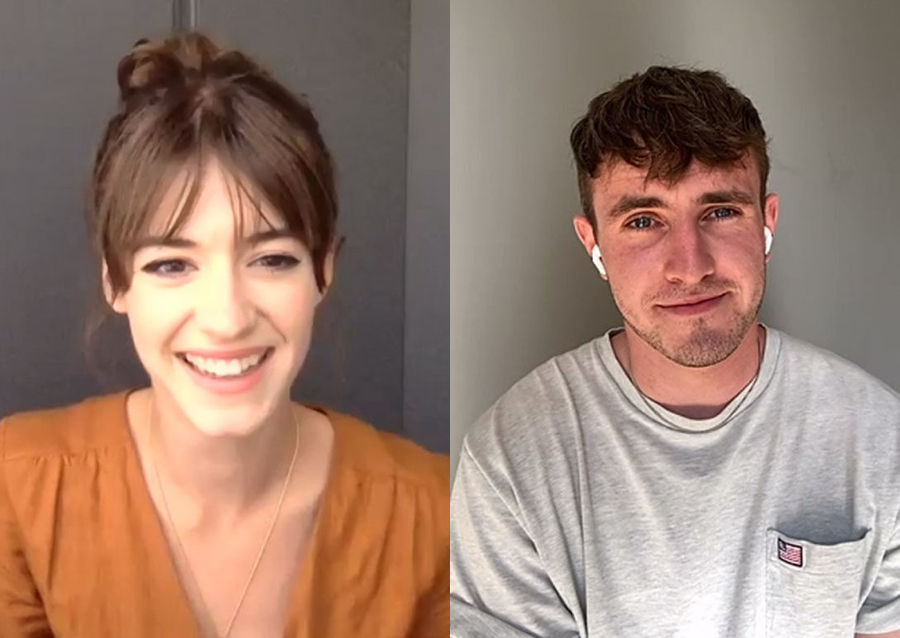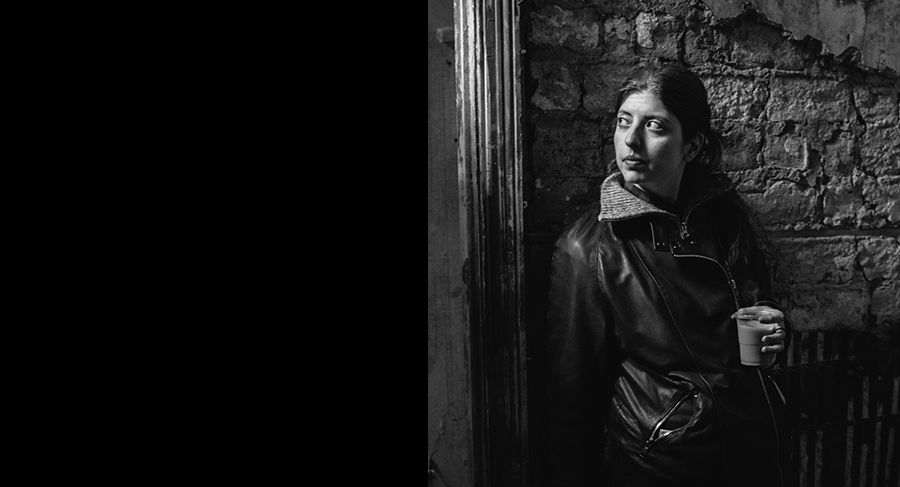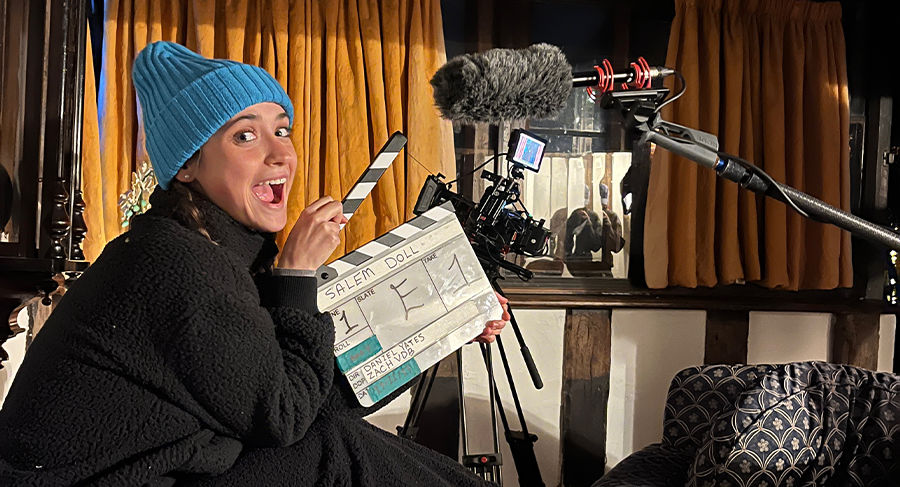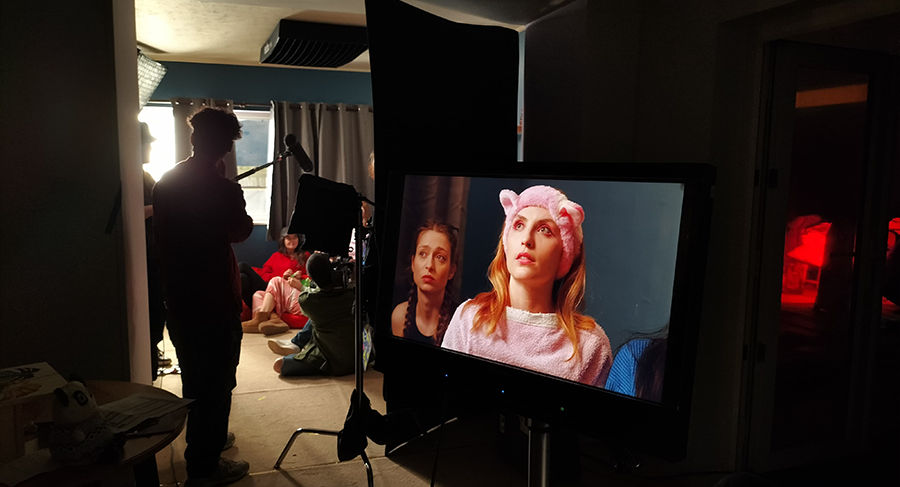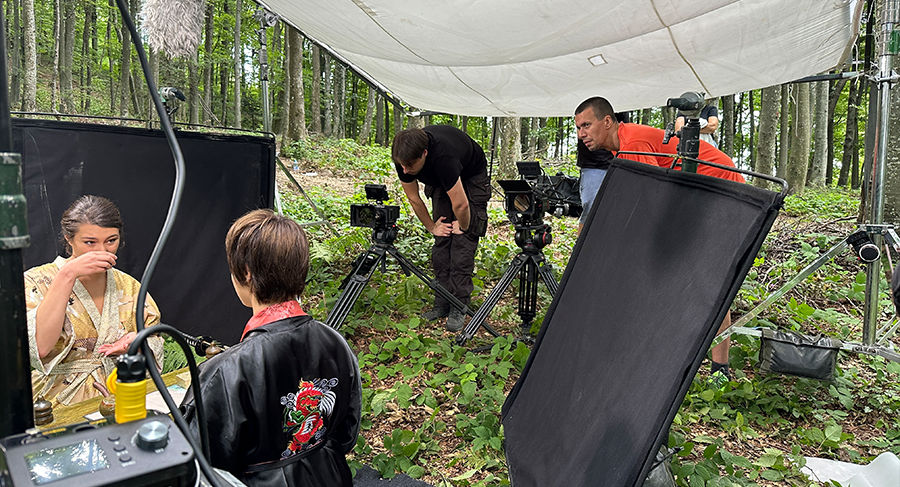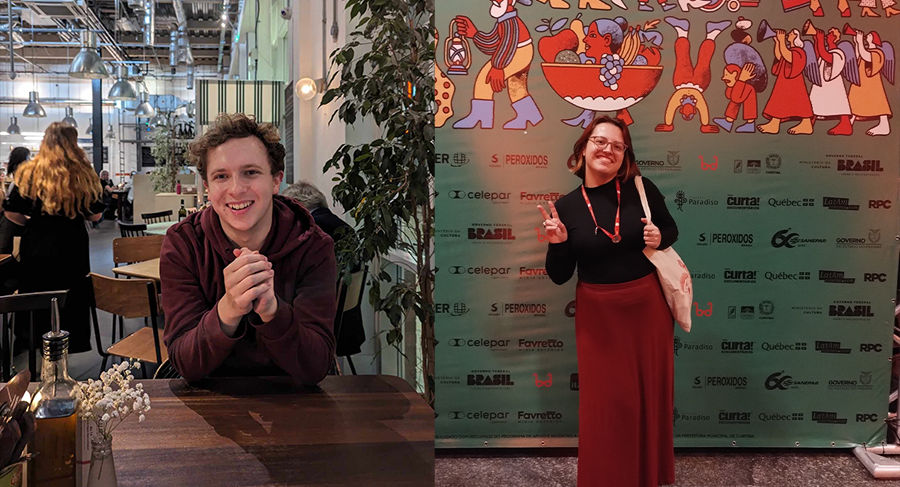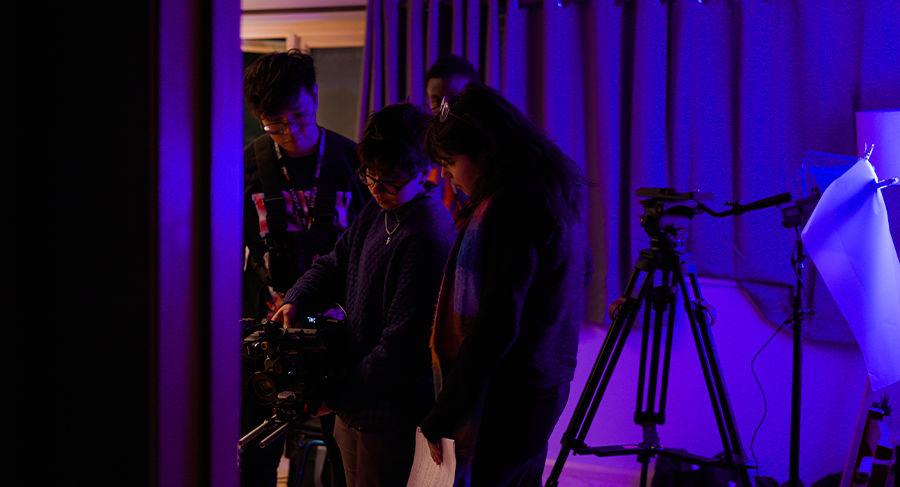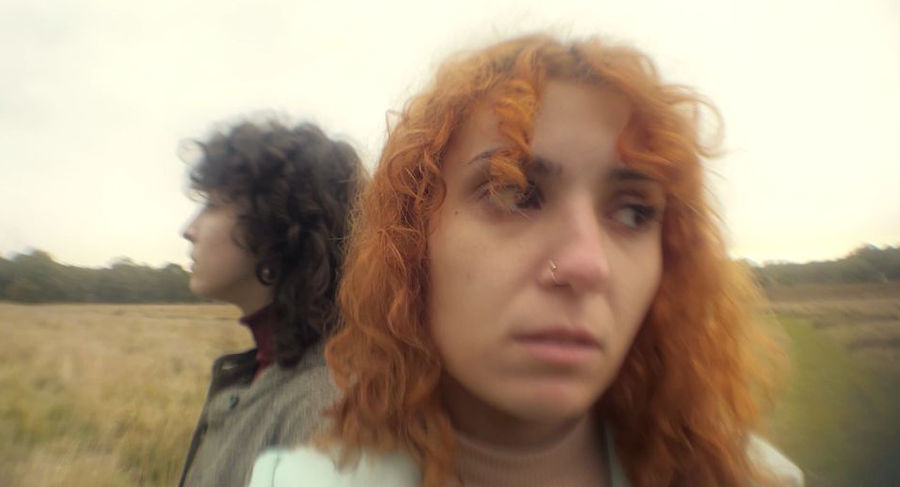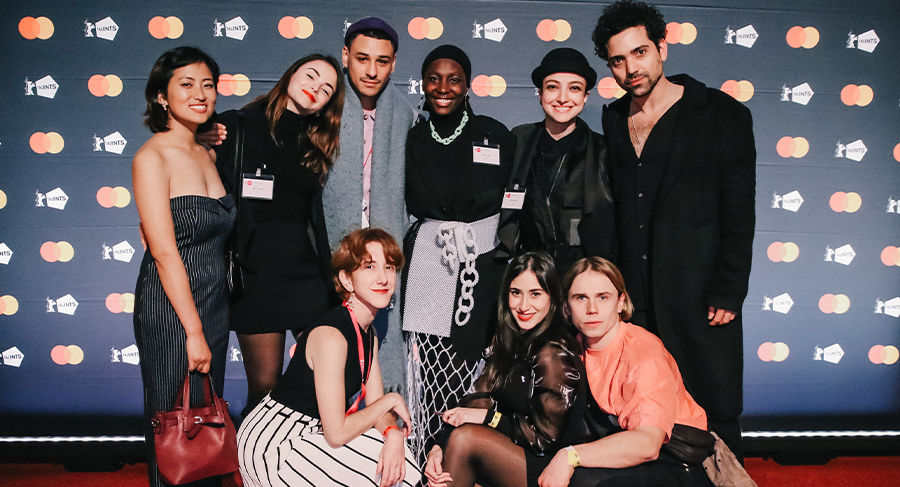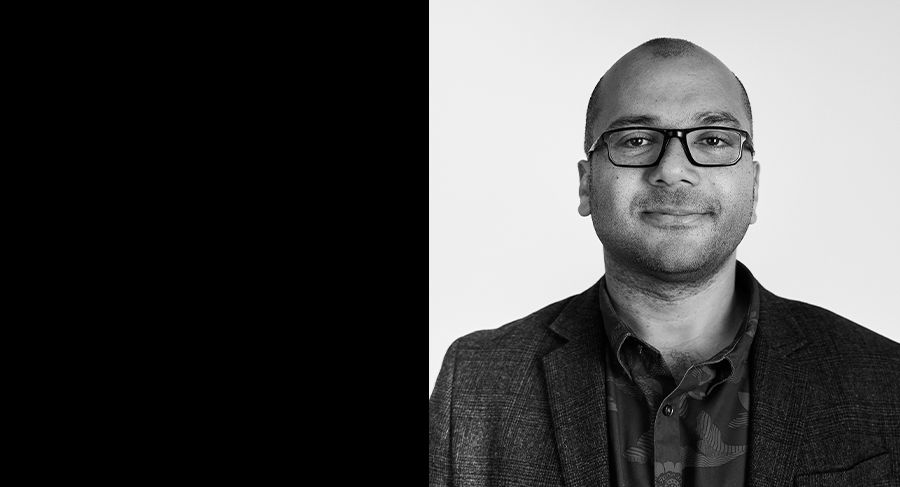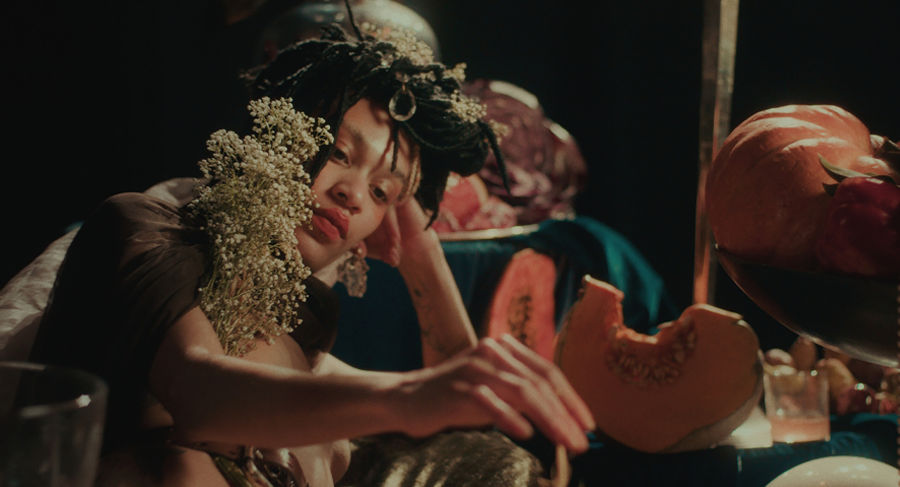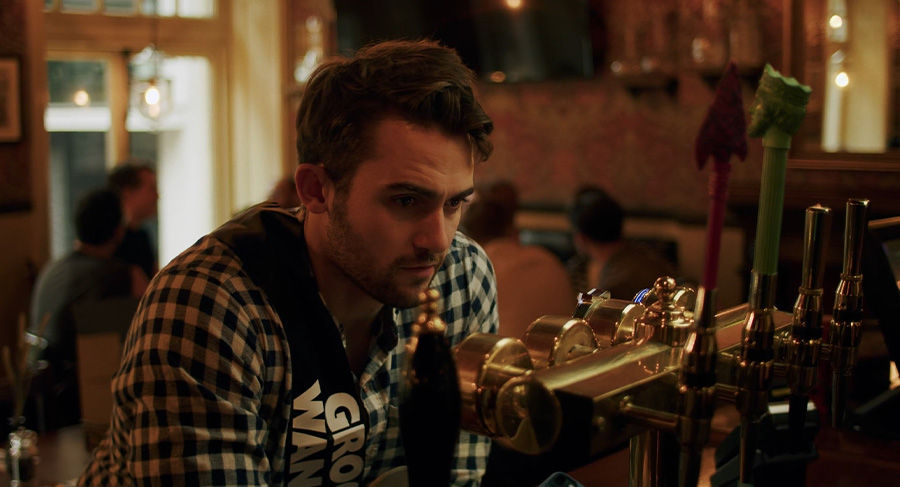Top takeaways from our Masterclass with Paul Mescal and Daisy Edgar Jones
By Rosie Togher
01 July 2020
Paul Mescal and Daisy Edgar-Jones were largely unknown to the public until Normal People burst onto our screens on 26 April – until 16.2 million viewers watched the 12-part drama, on BBC iPlayer in its first week of release. The BBC/Hulu adaptation of the bestselling novel by Sally Rooney was released through the BBC’s youth-focused digital channel, BBC Three.
The story of Marianne and Connell, two Irish teenagers, depict the highs and lows of a deep relationship spanning from high school, to college and into adulthood. Over 150 MetFilm School students tuned in to watch Paul and Daisy discuss their careers, how they prepared for the hit TV series and their advice for budding actors.
Here are our top ten takeaways from this MetFilm Virtual Masterclass…
GETTING INTO ACTING
Daisy: I always loved acting at school and was involved in school plays. For me, acting didn’t become a tangible career choice until I auditioned for the National Youth Theatre. I met my agent whilst here and it took me over a year to get my first job; Cold Feet. This show was a brilliant introduction into acting; where I had such a small role, I was able to learn on the go.
Paul: I had the lead role in my school musical when I was 16; it was there that I fell brutally in love with the adrenaline of being on stage, but at this point I didn’t see it as a viable career, as I didn’t know other people who were professional actors. I studied for a degree in Acting at The Lir Academy in Dublin. I went onto audition for drama schools with a blissful ignorance, as I had never been in a play or read a huge amount of plays, I just had a gut instinct about what I enjoyed doing and how acting made me feel.
LIFE ON SET
Paul: I felt secure in how to prepare for a character, but the environment was brand new. A large part of the first couple of weeks consisted of, sitting on set and watching how Daisy modulated her energy between takes on set. This was really informative as my experience of acting till then was within a theatrical setting only; where you have intense rehearsal periods and then you are on stage. Whereas a setting like Normal People, you have a lot of downtime, and once you are on set you would be working 12–hour days.
GETTING TECHNICAL
Daisy: I’d never been involved with discussions as to why a certain camera had been chosen but I really enjoyed listening to Suzie Lavelle our Director of Photography talk to Lenny Abrahamson, the director, about why for example, we were choosing negative framing to tell this moment. I find it fascinating what a camera can do to tell a story.
WORKING WITH DIRECTOR, LENNY ABRAHAMSON
Daisy: Something I think Lenny is uniquely amazing at doing is telling a character’s perspective. Where Marianne and Connell’s journey is so internalised in the book, Lenny’s way of being in a character’s head is really unique to him. I remember being in awe when I watched Room where the main character is so young, yet we are with him, we can feel his world and read his mind.
FILMING FUNERAL SCENES
Daisy: As we didn’t film chronologically, there was no time to stress about a particular scene until it came to film it. When filming the funeral scenes (Ep.10) it wasn’t until the day before when we were given the script that I really started to think about the moment, and how best for it to be played out.
Paul: There was a very clear atmosphere as you step onto set. Where we had both played these characters for 7-8 weeks at this point, we knew the importance of this moment for both of the characters.
Official trailer for BBC Three’s Normal People
FILMING THE THERAPY AND COUNSELLING SCENES
Paul: The set was quite subdued, a specific decision that Hettie Macdonald the director had made. The first two takes I broke down, which was great, but in the takes after I found it harder and harder to get back in that moment. It was this internal pressure that I was putting on myself to get it right as I loved the writing so much, and it was a huge part of Connell’s character. I took some time out over lunch to listen to a playlist, so when I returned to set it all clicked and I found it easier to channel the right emotions.
MOST CHALLENGING EPISODE TO FILM
Daisy: Episode 9 was particularly tough as with Marianne’s character she had different levels of lows and we weren’t filming chronologically so tracking this was quite tricky. Episode 7 was also tough as we had time constraints; it was my favourite scene in the book, so I wanted to do it justice.
Paul: We had such time pressures filming episode 7 and I felt like Daisy was nailing it, but we didn’t have time to do an insurance take as it was our last day on location. I remember the fear that day, as it was such an important scene. When I look back at it now, I love that scene, in particular the aspects we didn’t see like the overhead lighting.
GETTING INTO CHARACTER
Daisy: I have a version of the book where I plotted the growth of the characters from start to finish using quotes from the book. I used a large number of Connell’s chapters to really explore Marianne’s physicality, as that dynamic between her inner life and inner self versus the version that Connell sees which is really different. From Marianne’s chapters, I always felt that she was quite a vulnerable and sensitive person but from Connell’s chapters he thinks that she is very sure of herself through the way she conducts herself.
Paul: Assembling a playlist is really important because it is an easy entrance into a character’s feelings; something that Daisy and I created together. Music helps an actor get to an emotion very quickly.
BEST ADVICE YOU HAVE RECEIVED
Paul: Shortly before I graduated, the Head of The Lire Academy, Loughlin Deegan said ‘don’t be a dick’ – no matter how talented you are, if you are a dick you will be difficult to work with, you won’t be as open and available to those around you and you might work with a director, producer or company once but ultimately people do the job that we do to enjoy creative peoples company. They don’t work with people purely just for talent.
Daisy: Being a freelance actor there is so much you can’t control, so if you can control things such as being a nice person, preparing thoroughly for auditions, doing everything you can; then ultimately if it doesn’t go your way you know you’ve done your absolute best, and it is no fault of yours.
WHAT ARE YOU LOOKING FOR IN YOUR NEXT ROLE?
Daisy: I feel that Normal People is very representative of the work that I love to do, which is really character-driven. I am also really interested in Directors who have a real specific vision.
Paul: For me, it’s about the writing. If the writing is not there, it can’t support a story and therefore it can’t support a filmmaker no matter how good they are.
Passionate about a career in front of the camera? Find out more about MetFilm School’s acting courses.
